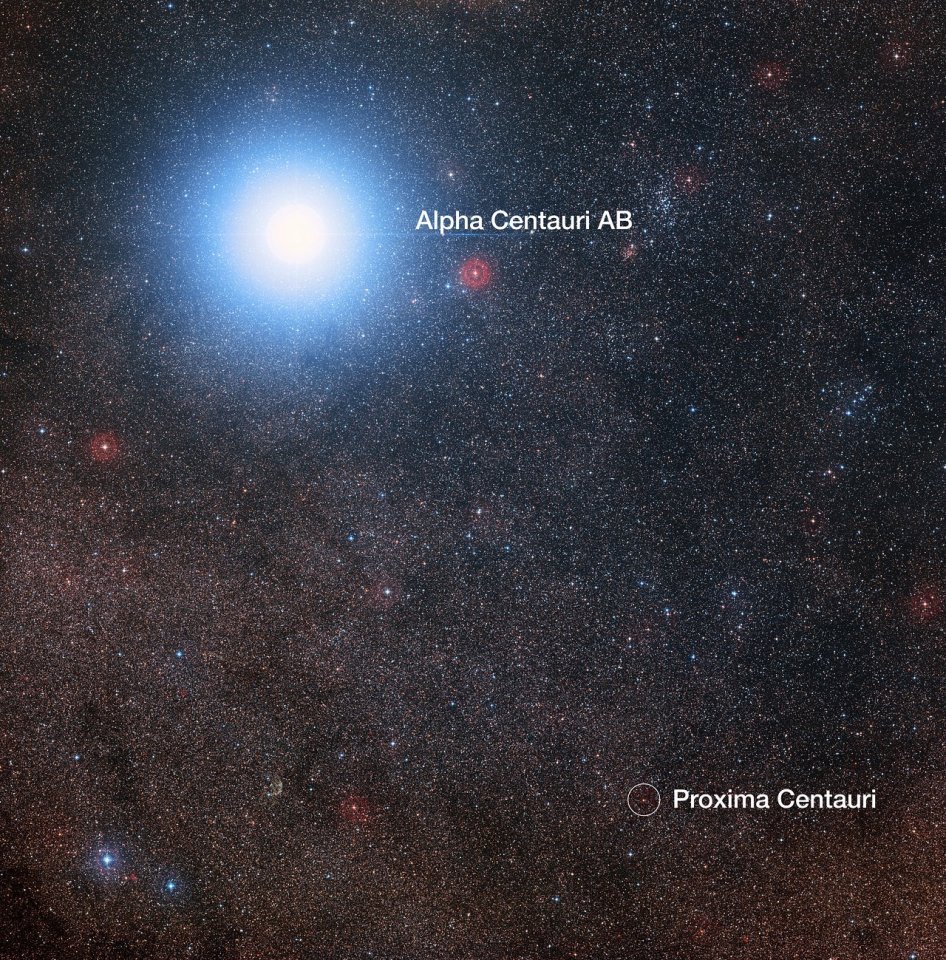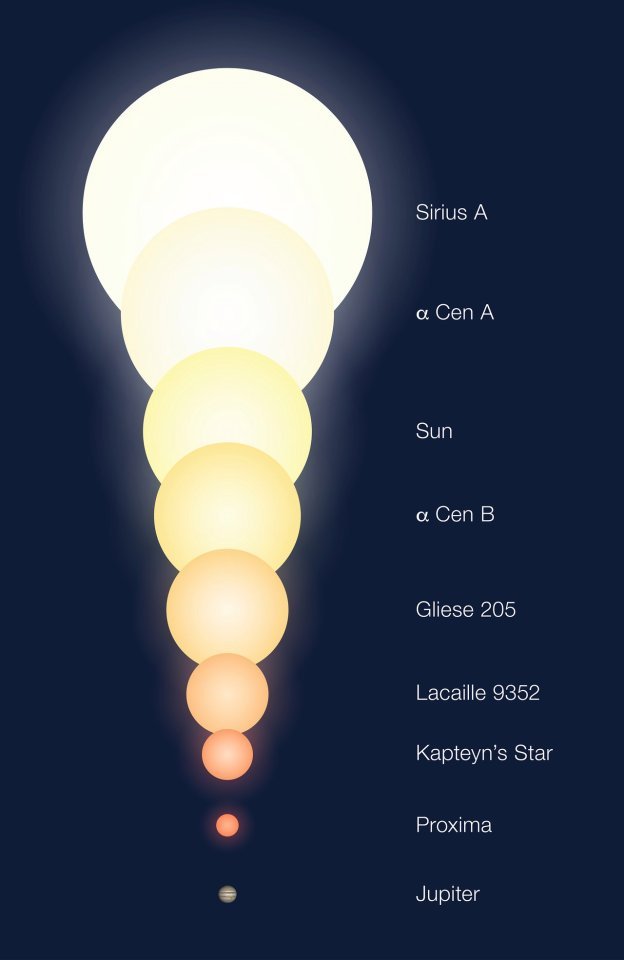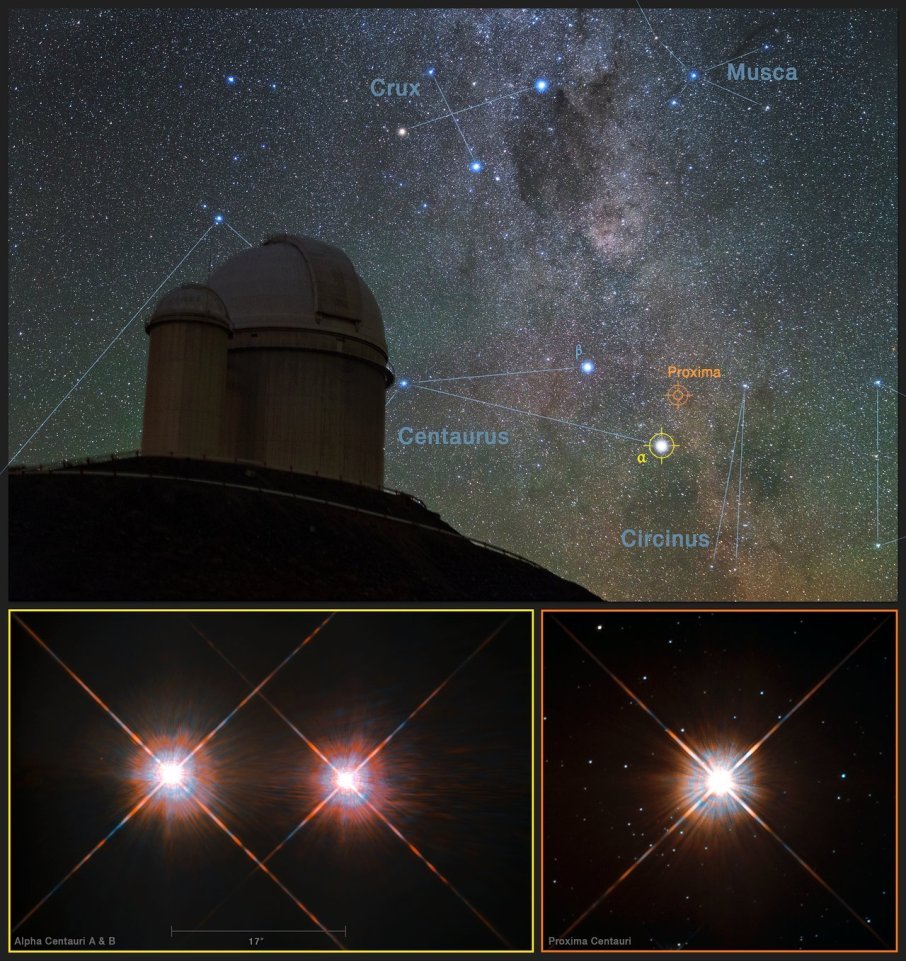Astronomers have discovered a “second Earth” orbiting our closest star and it could have exactly the right conditions to sustain alien lifeforms.
Stargazers from the European Southern Observatory spotted the mystery world circling Proxima Centauri, a red dwarf star that’s just four light years away.The planet is orbiting in the “goldilocks zone” of Proxima Centauri, which means it’s close enough to the star that water would not freeze but far away enough so that water wouldn’t boil.This is important because the presence of liquid water is thought to be necessary for the development of life.


Now scientists are trying to figure out a way of getting a robotic probe to the planet to see if it is home to alien organisms, although this is not a mission many of us will live to see.Using current rocket technology, it would take 76,000 years to get to our nearest star.However, there is hope that “light sail” technology currently under development could allow us to send a robotic probe to the planet in about 25 years.Dr Guillem Anglada-Escude, from Queen Mary University of London, led an international team of about 30 astronomers during a bid to find the planet, which is called Proxima B.She said: “Succeeding in the search for the nearest terrestrial planet beyond the solar system has been an experience of a lifetime, and has drawn on the dedication and passion of a number of international researchers.“We hope these findings inspire future generations to keep looking beyond the stars. The search for life on Proxima b comes next.”Dr Mikko Tuomi, from the University of Hertfordshire, added: “‘According to the findings the planet has a rocky surface and is only a fraction more massive than the Earth.“It is the closest possible exoplanet to us and may be the closest to support life outside the solar system.”


We asked Nick Pope, a British researcher who used to run the Ministry of Defence’s UFO investigation department, if he thought we’d find aliens on the planet.He said: “This game-changing discovery may help us answer the question of whether or not we’re alone in the universe – one of the biggest and most profound questions we can ask.“Many people believe there are aliens out there and now it’s possible that they’re our galactic next door neighbours.“Every effort should be made not just to find out more about this planet, but to look for evidence of life – and maybe even intelligent life.”
Proxima Centauri is part of a triple system of stars in the constellation of Centaurus. It is the faintest of the three, which also include a much brighter pair of stars known as Alpha Centauri A and B.From Earth, the system appears as a single bright star – the third brightest visible in the night sky.Astronomers made the discovery, reported in the journal Nature, after studying Proxima Centauri using a special instrument on the 3.6-metre telescope operated by the European Southern Observatory at La Silla in Chile’s Atacama desert.The High Accuracy Radial velocity Planet Searcher was able to measure the tiny “wobble” in the star’s position caused by its interaction with the planet’s gravity.Shifts in the star’s light spectrum showed that at times the star was approaching Earth at around human walking pace – about 3mph – and at other times receding at the same speed.From this data the scientists were able to infer the presence of a planet around 1.3 times more massive than the Earth orbiting at a distance of 7.5 million kilometres.Because red dwarfs can mislead planet hunters by giving false signals linked to “star spots” – the equivalent of sun spots – the scientists had to be sure of their findings.
Initial hints of a planet were observed in March 2000 and it took another 15 years before sufficient evidence was available to justify announcing the discovery to the world.Co-author Dr John Barnes, from the Open University, said: “Once we had established that the wobble wasn’t caused by star spots, we knew that that there must be a planet orbiting within a zone where water could exist, which is really exciting.“If further research concludes that the conditions of its atmosphere are suitable to support life, this is arguably one of the most important scientific discoveries we will ever make.”He said: “If further research concludes that the conditions of its atmosphere are suitable to support life, this is arguably one of the most important scientific discoveries we will ever make.”
